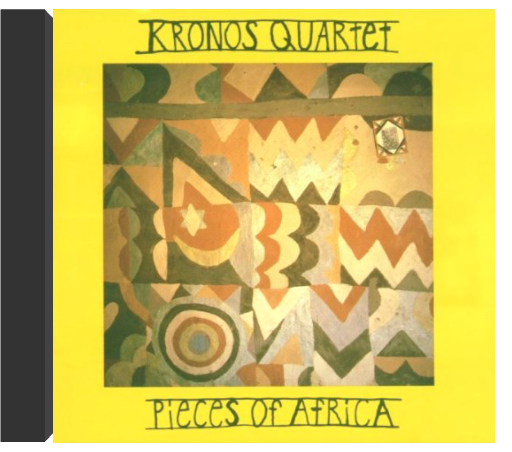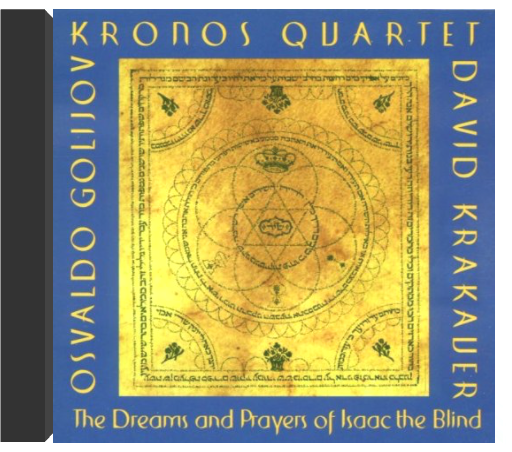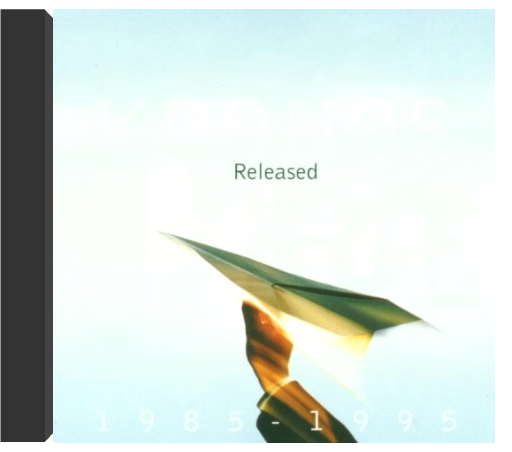 Kronos Released, 1985-1995Kronos Quartet Kronos Released, 1985-1995Kronos Quartet For all its wide stylistic span and just plain good listening, Kronos's Released 1985-1995 is problematic in that it doesn't acknowledge the group's decade-long pre-Nonesuch history with so much as a footnote. That aside, Released, which celebrates the first ten years of the group's association with Nonesuch, is like a great mix tape, stringing pop-song-length selections from 11 albums to wonderful effect. It opens with a joyous Zimbabwean cross-cultural composition; segues into a brief tango by Astor Piazzolla; and goes on to comprise classic minimalism (Steve Reich, Terry Reilly, Philip Glass), a broader palette of 20th-century classical (Samuel Barber, Henryk Gorecki, George Crumb, Arvo Part), and work truly unique to the Kronos repertoire (Ben Johnston's arrangement of "Amazing Grace"). A second CD includes a live recording of Jimi Hendrix's "Purple Haze," a catchy rendering of a wacky Raymond Scott hodgepodge, a novelty homage to Elvis Presley, and a selection from Scott Johnson's extraordinary musical setting of readings by historian I.F. Stone. A great starter kit for Kronos newcomers. —Marc Weidenbaum 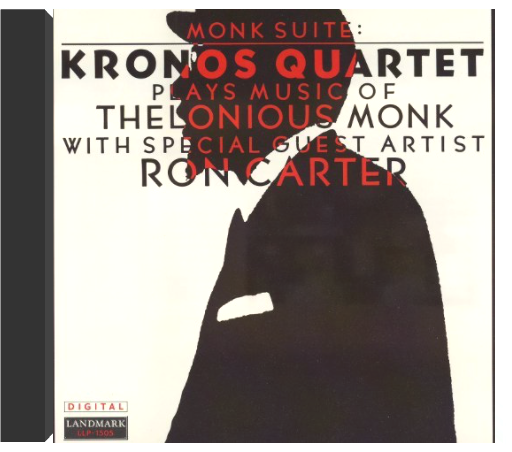 Monk Suite: Kronos Quartet Plays Music of Thelonious Monk with Special Guest Artist Ron CarterKronos Quartet Monk Suite: Kronos Quartet Plays Music of Thelonious Monk with Special Guest Artist Ron CarterKronos Quartet 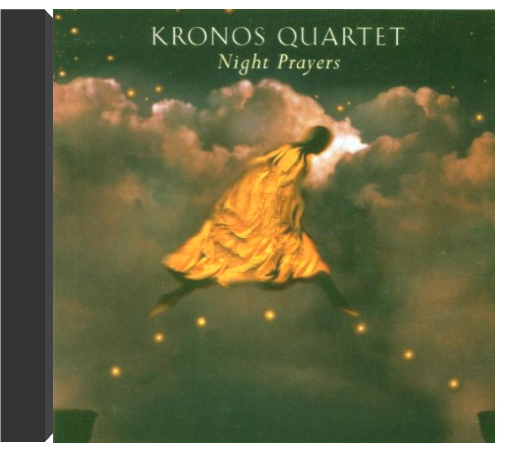 Night PrayersKronos Quartet Night PrayersKronos Quartet Collaborating with the Tuvan singers, a Latvian cantor and soprano Dawn Upshaw, the internationally-renowned Kronos Quartet performs music from the former Soviet state, a haunting collection of songs and laments joining traditional music with classical composition.  NuevoKronos Quartet NuevoKronos Quartet With 'Nuevo' - a project based entirely around Mexican composers, musical traditions and influences - the Kronos Quartet have delivered one of the most striking group odysseys to date. Produced by Gustavo Santaolalla, both an authority on Latin American art music as well as the most in-demand producers of rock en espanol, the album also features a host of guest artists from both the concert hall as well as the streets of Mexico. Housed in a slipcase. 2002. 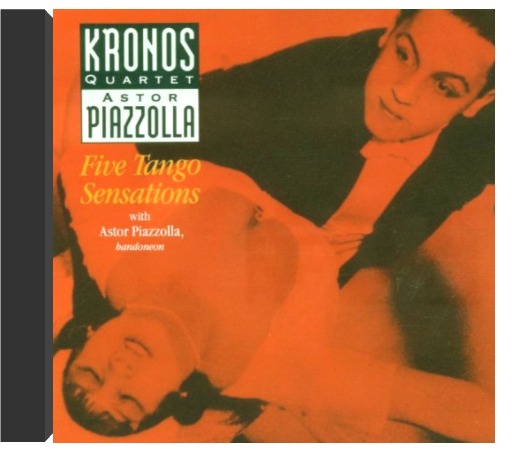 Piazzolla: Five Tango SensationsKronos Quartet Piazzolla: Five Tango SensationsKronos Quartet This "EP" (about 27:00) contains just one work and sells for a reduced price. Astor Piazzolla wrote this music for himself to play with the Kronos Quartet. People who don't know Piazzolla's music might think this is just a collection of dances. But Piazzolla did for the tango what Chopin did for the polonaise, writing music of substance and passion that rewards repeated listening. I wish Nonesuch would reissue this disc combined with the its CD of Piazzolla orchestral works (now out of print, regrettably). But for the cautious, this disc will make a fine introduction to someone increasingly recognized as a master in his field. —Leslie Gerber 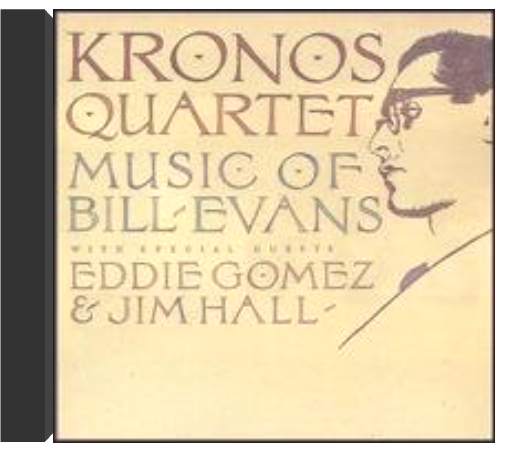 The Music of Bill EvansKronos Quartet The Music of Bill EvansKronos Quartet For their second and final jazz project, the adventurous Kronos Quartet (a top classical string quartet) performed eight Bill Evans compositions, plus "Nardis" (which Evans always claimed Miles Davis stole from him). Three songs apiece add either guitarist Jim Hall or bassist Eddie Gomez. The members of Kronos (David Harrington and John Sherba on violin, Hank Dutt on viola, and cellist Joan Jeanrenaud) expertly play Tom Darter's arrangements, some of which (particularly "Peace Piece") are transcriptions of pianist Evans' solos. 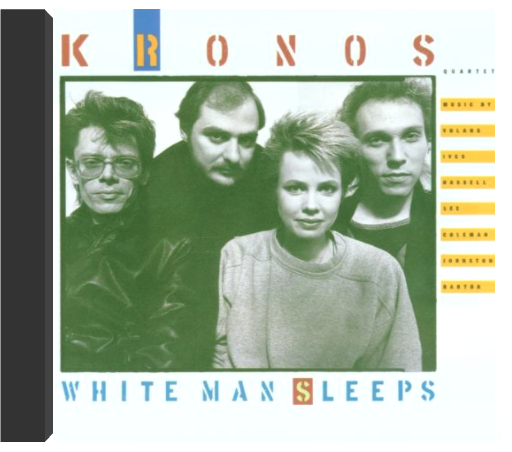 White Man SleepsKronos Quartet White Man SleepsKronos Quartet Kronos's second Nonesuch record combines seemingly unrelated work into a fairly seamless whole. From the off-kilter jazz of Ornette Coleman's "Lonely Woman" to the strains of Bela Bartók's String Quartet No. 3, this is an album of blues-tinged music. Kevin Volans, the South African composer, lends the disc its title and its opening track, which melts hesitantly familiar folk melodies into a racing quartet. Volans's technique is not far removed from that of Bartók, more than 70 years his senior. Kronos slow the intonations of Bartók's quartet to about a minute and a half longer than the Emerson Quartet's take—long enough to contribute to a kind of defamiliarization. Speaking of which, Ben Johnston's arrangement of "Amazing Grace" is what makes this CD a real keeper. He tests the mettle of this beloved melody by playing it against itself in numerous different ways, and the tune never succumbs to the tinkering. —Marc Weidenbaum 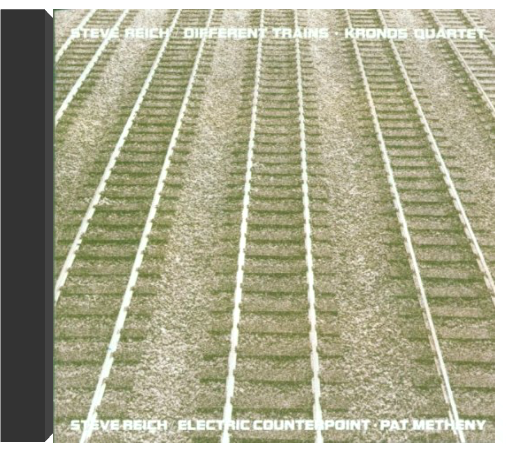 Reich: Different Trains, Electric CounterpointKronos Quartet, Pat Metheny Reich: Different Trains, Electric CounterpointKronos Quartet, Pat Metheny No Description Available.  Claude Debussy: PréludesKrystian Zimerman Claude Debussy: PréludesKrystian Zimerman No Description Available. |
 Made with Delicious Library
Made with Delicious Library

